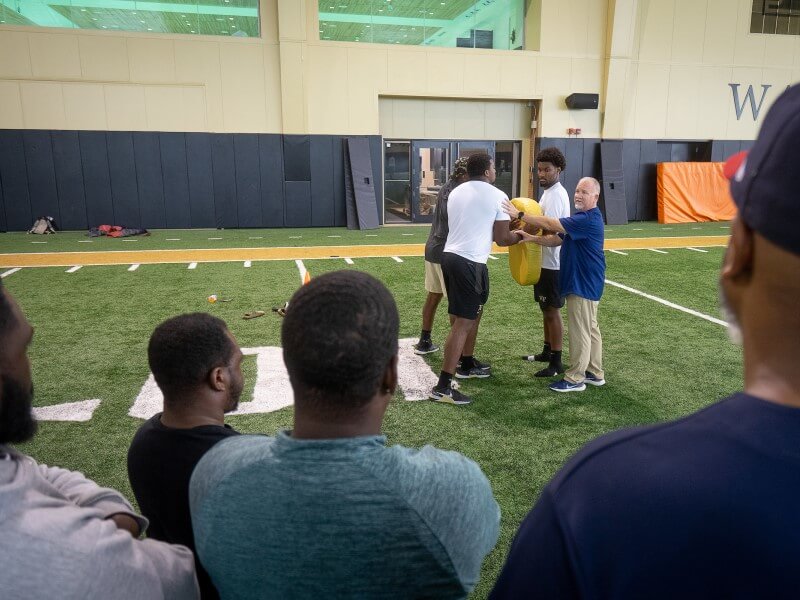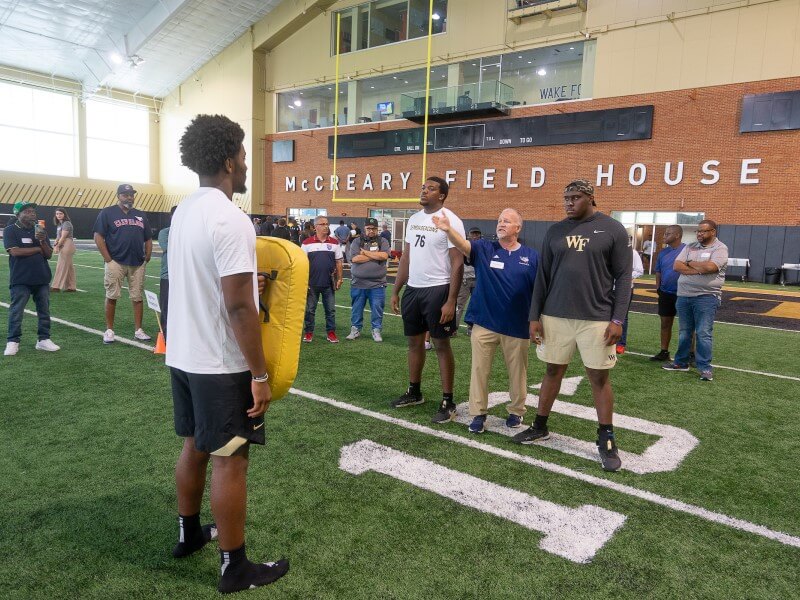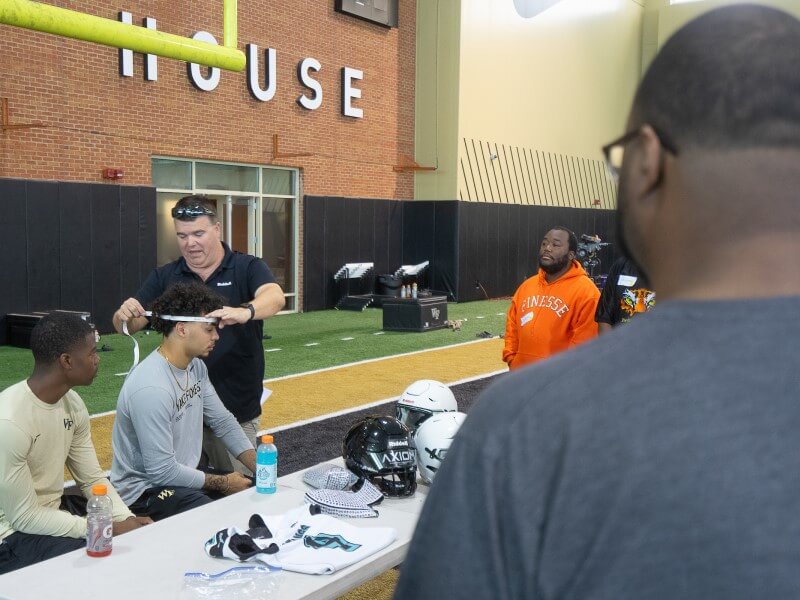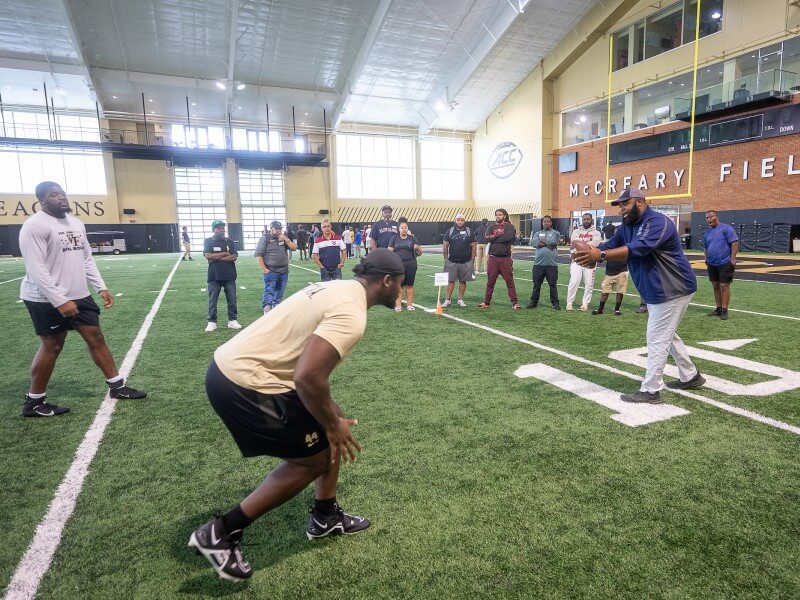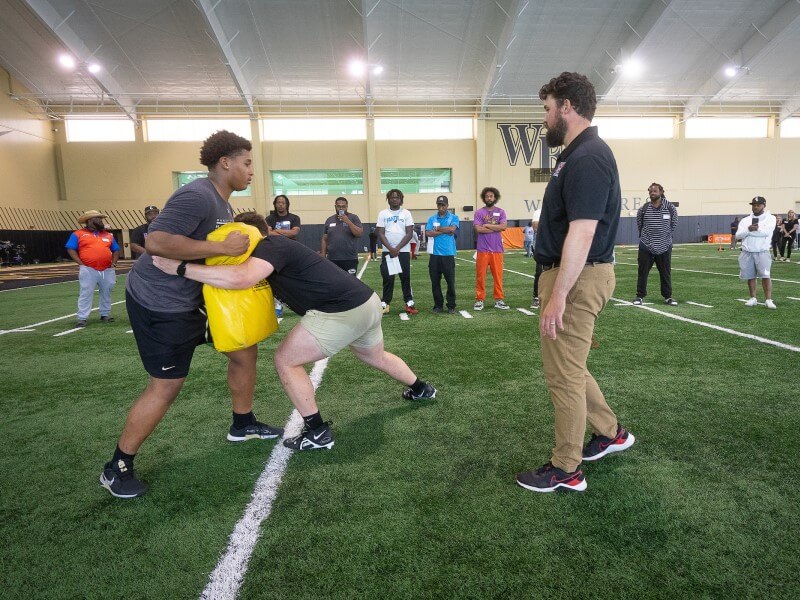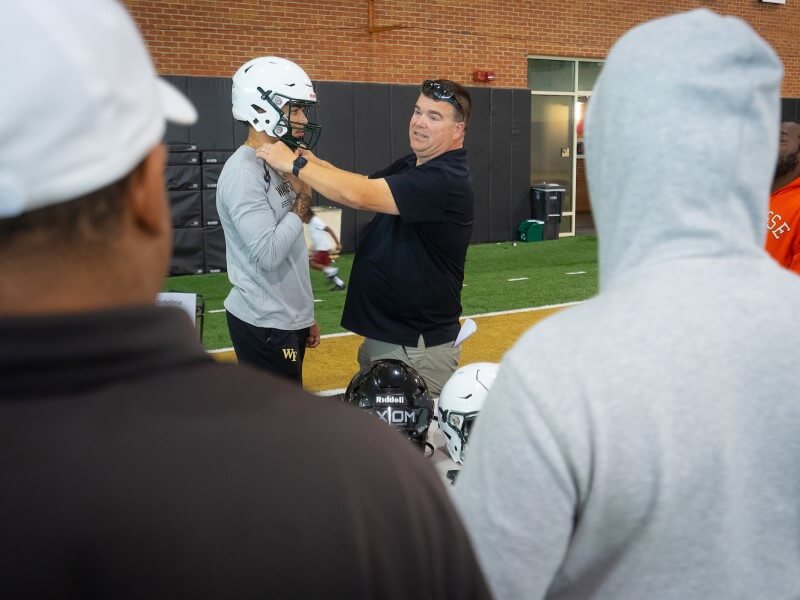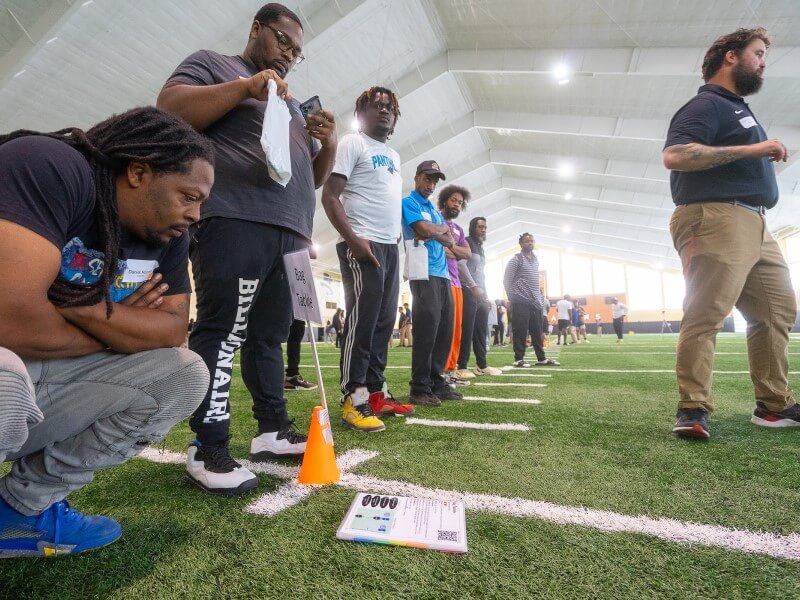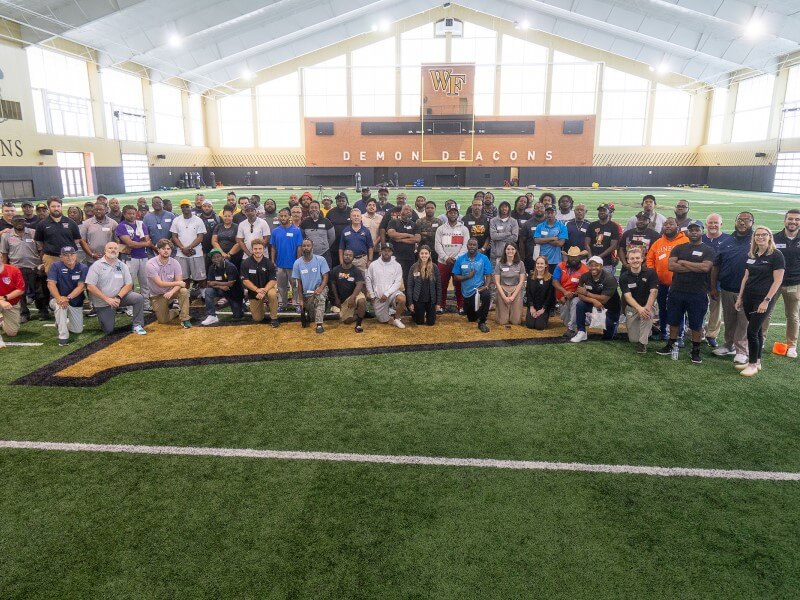Football is America's most popular sport, but many are divided about whether youth should play the tackle version of the game.
Researchers at Wake Forest University School of Medicine have been working over a decade to understand ways to improve safety of the game, while maintaining the love of the sport. These researchers have found that youth football head impacts are greatly influenced by drills conducted in practice. These findings came from a first-of-its-kind study led by Joel Stitzel, PhD, professor and chair of biomedical engineering and Jillian Urban, PhD, MPH, assistant professor of biomedical engineering.
In the next phase of this research, Urban has been working collaboratively with a team of stakeholders in the local youth football community to develop an evidence-based intervention program to reduce head impacts and concussion risk in practice, informed by the biomechanics data she and her team have collected. The intervention program that seeks to improve the knowledge and skills of coaches through effective practice planning and use of safe practice drills. The goal of the program was to change perspectives toward physical contact and leverage the culture change that has occurred at the higher levels of play to do so.

|
“With this new project, we held focus groups with parents, coaches and organizational leaders to really understand their perspectives and experiences in the sport. We also formed a stakeholder team that includes youth football coaches, high school football coaches, parents, medical providers and former football players to collaboratively develop the program.” – Jillian Urban, PhD, MPH, assistant professor of biomedical engineering |
Urban and the stakeholder team discovered that local high school coaches have been incorporating safe practices for many years through guidelines provided by the North Carolina High School Athletic Association and are motivated to adhere to the guidelines to keep their players healthy. To best reach youth football coaches, Urban and her team coordinated an event where high school coaches could educate youth coaches on effective practice planning and how to incorporate different drills in practice to develop the skills of athletes, and keep them safe.

"The goal for this clinic was to bring along youth coaches and provide information and resources on how to adopt these safe practices,” said Urban. “The clinic was really centered on the high school coaches delivering this information and demonstrating – with the help of Wake Forest football players – how to incorporate drills into practice to reduce head impacts and concussion risk. This was accomplished by focusing on teaching athletes the fundamental skills that they need to play the sport safely and effectively by implementing safer practice drills and efficiently planning practice.”
The event was organized through a community partnership with local youth and high school football coaches, parents, administrators, medical providers, Wake Forest football and researchers at the School of Medicine.
During the clinic, coaches were able to review other resources included in the program, including a resource booklet with guided practice plans that are aligned with the North Carolina High School Athletic Association. The resource booklet provides insight into practice planning and contains a menu of drills – each page has a drill that summarizes the purpose of the drill, the role of the players, the skills that are intended to be developed, and some key terms that they can reinforce when they are running the drill. Urban and her team look forward to further refining and expanding the reach of the program to more youth football teams and organizations.












